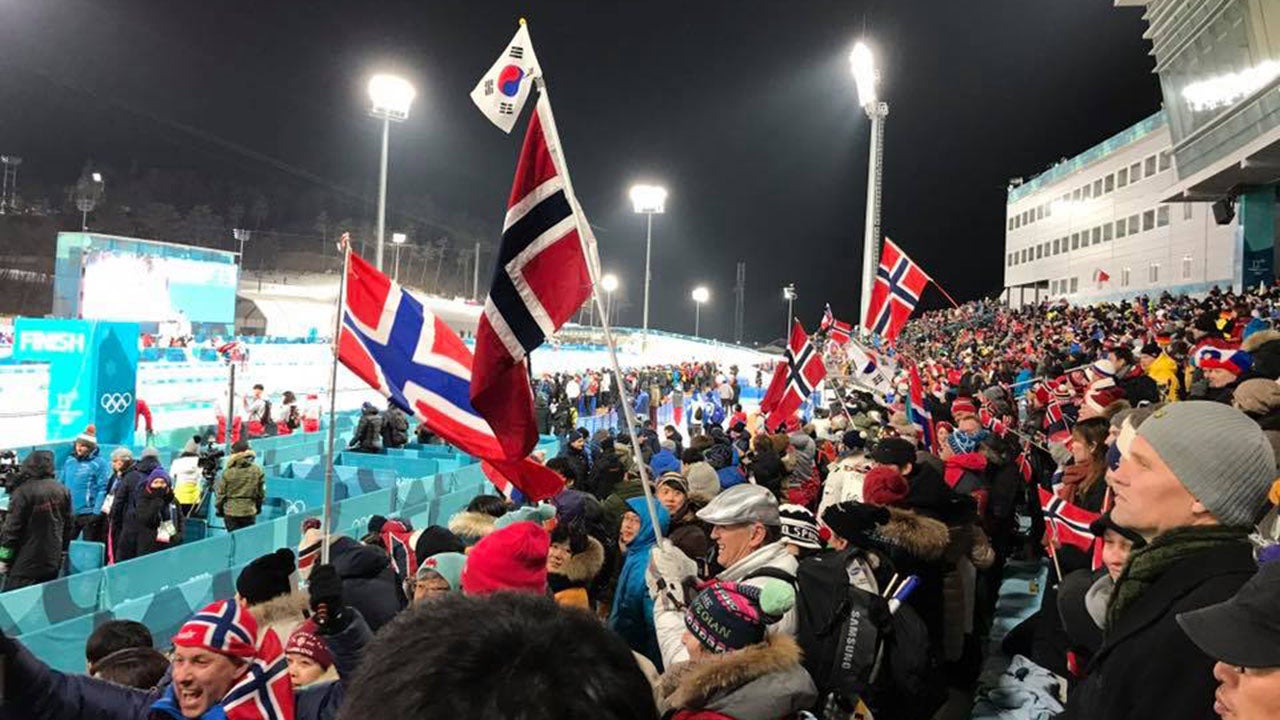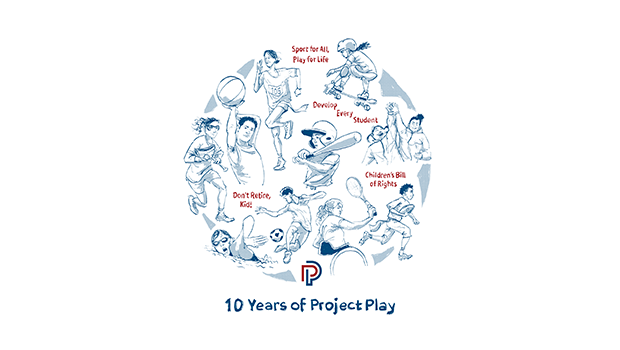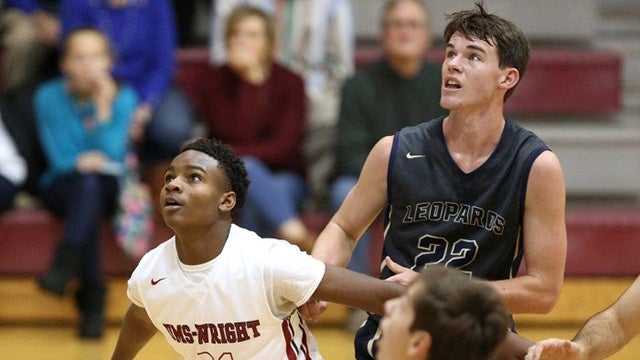This article originally appeared in the Denver Post
Once in a generation, maybe once in a century, an opportunity comes along to deliver on the full promise of sports as a tool of nation-building. Not just entertainment. Not just an opportunity to reflect on our culture. But actual nation-building, meaning the use of sport to develop healthy children and communities, which in turn can help address a range of well-established challenges, from obesity to crime, and mental health to military readiness.
That opportunity is now before us, and I’d like to put it on the table.
It flows from legalized sports betting, which in May the Supreme Court opened the door to in ruling the federal government could no longer prohibit states from authorizing (and taxing) such activity. New Jersey was the first mover, but no less than two dozen states are now taking steps to allow gambling on sports events. Within five years, that market could generate between $3.1 billion and $5.2 billion a year in annual revenue, according to one projection.
The exact locations where such betting may occur, and the types of bets allowed, will be worked out, state by state, in the coming months and years. First in the door with their lobbyists were the casinos, who aim to limit sports betting to their facilities so they can hoard the winnings. Behind them are the professional sports leagues, who argue they need a cut of action — a so-called “integrity fee” — to have the resources to keep gamblers from compromising the results of games.
Those who lawmakers really should be hearing from are their peers in Norway, who have no vested interest in our policies, just a powerful example to share. With a population of 5.3 million, the westernmost Scandinavian nation is the size of many US states. It’s also among the healthiest nations in the world, which starts with a commitment to get children out of the house. Though Norway is bone cold most of the year that close to the Arctic Circle, most youths are physically active at least 60 minutes daily, according to the Norwegian Institute of Public Health. They engage in a wide range of activities, from cross-country skiing to speed skating, soccer to team handball, and cycling to swimming.
Sports betting helps make all this possible. Along with other forms of gambling, sports betting is legal in Norway, controlled by a government-sanctioned non-profit company, Norsk Tipping. When placing a wager, a bettor is given the option of directing 7 percent of the company’s take to an approved local organization — sport, humanitarian or cultural — of their choice. In 2017, the “Grassroots Share” generated $58 million for such organizations, said spokesman Roar Jodahl.
Then, at the end of each year, Norsk Tipping sends its surplus to the government, which distributes the funds based on a formula determined by Parliament. Currently, sport and recreation groups get 64 percent of those funds, which in 2016 generated $330 million for new projects, most at the community level. Since inception in 1948 when Norsk Tipping was created to finance the rebuilding of the country after World War II, the fund has delivered $6.4 billion (in 2016 value) to sport providers alone, who have used the support to build local facilities, buy equipment, and train their mostly volunteer coaches.
“This is critical to the stability and health of the Norwegian people,” the great Olympic speed skater and humanitarian Johann Olav Koss told me recently.
States would be wise to draw on this model. Americans, like Norwegians, want to live in active, vibrant communities — and most of us understand intuitively the essential role of parks, bike paths, and recreation programs in creating them. Overwhelmingly, parents want their kids involved in organized and unstructured activities that lay the groundwork for healthy lifestyles into adulthood. And right now, that’s just not happening as much it needs to. Fewer than 3 in 10 high school students are physically active daily, and 39.8 percent of adults are obese.
Money alone won’t solve the problem. But as someone who has studied our sport delivery system for two decades, I can assure you that only so much progress can be made without greater investment in the hardware (nearby places to play) and software (better youth coaches, quality P.E. programs) of community recreation, especially in low-income urban and rural areas. In places like Harlem, Buffalo, Detroit, and Mobile County, Alabama, where our Aspen Institute program has landscaped the state of play, we’ve found no lack of desire by kids to play sports or adults who want to help – just a lack of resources to scale the best programs or provide safe places to go between the hours of 3 and 6 pm when parents are still at work. Baltimore had 130 neighborhood rec centers in 1990. Today, there are just 42. Neighborhoods without them have some of the highest crime rates.
For states right now, the argument to legalize sports gambling lacks any defined public purpose. Former Senator Bill Bradley worries that turning every game into a betting opportunity, with the inevitable barrage of related ads, will change our relationship with sports and make it more transactional, less values-driven. So why do it? To prop up failing casinos? Grow franchise values and player salaries? Pump new revenue into a state’s general treasury, for legislators to argue over and spend who-knows-where, from government pensions to road construction?
Earmarking funds derived from sports betting to get more kids active through sports turns a threat into a clearly articulated opportunity. It’s coherent policy, leveraging the top of the sports pyramid – big-time entertainment – to underwrite the base. And we know the potential downstream results. For instance in Western New York, where we’re working, 16 percent of youth are active daily. If that number can be pushed to just half of all youth, the region will have 27,845 fewer overweight and obese children, which, if they stay active, projects to $472 million in direct medical costs saved and $500 million in economic productivity losses averted, according to Johns Hopkins University.
If that’s the value proposition, states should fully if carefully exploit the opportunity. Don’t force bettors to drive to casinos or race tracks to place wagers. Allow it on mobile devices so those who are inclined to bet (I’m not one of them) can do so from sports bars and living rooms. The more revenue derived, the greater chance states have to build healthier communities through sports, as well as develop the resources to limit problem gambling, behavior that certainly could grow. Agree to work only with companies that restrict bets to pro and perhaps college games, and with the leagues to keep game integrity issues from growing.
Then, watch your state flourish, as Colorado has with the aid of lottery revenues dedicated to funding recreation projects. There, 24 cents of every dollar spent on the lottery goes back to the state, which since 1992 has generated $3.1 billion to build 900 miles of trails and 1,000 parks, skate parks, pools, and ballfields. The funds improved facilities at some underfunded schools and preserved more than 700 miles of rivers. Small wonder Colorado has among the nation’s most active citizens, and the state is one of the fastest-growing in the nation.
Any state could take the leap into sports betting, smartly deployed. But I nominate Minnesota. It’s the same size population of Norway. Similar climate. History of investing in community sports. Scandinavian heritage, even. At the 2018 Winter Olympics, Team USA was practically Team Minnesota, whose hockey, curling and ski athletes helped our delegation win 23 medals, fourth-best in the medal count. The nation that finished on top? Norway, which won a record 39.
Amazing what grows at treetops when the grassroots get fed.
Tom Farrey (@TomFarrey) is a journalist and executive director of the Aspen Institute Sports & Society Program. On Sept. 14, the Aspen Institute held panel discussions on the topic titled “Future of Sports Betting: Reimagining its Public Value.” Read the recap and transcript from the event. Learn how
other countries handle sports gambling.


